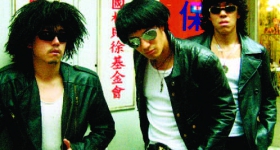When movies starring Jackie Chan began distributing in the
United States, his name became a favorite taunt against Asian Americans in
school yards across the country.
Now, US leaders have introduced a new label into the American
psyche – “currency manipulator.”
Both President Barack Obama and challenger Mitt Romney have
held nothing back in finding a scapegoat for America’s economic woes. Forget
the big banks that sent the US economy into a tailspin that it has yet to
recover from, or European countries that can no longer pay their bills. The
candidates both agree that China is the greatest economic rival of the US and the
easiest punching bag, and are racing to convince the electorate that they will
be the tougher president against the world’s second largest economy.
In debates, Romney has pledged to label China as a currency
manipulator and slap tariffs on Chinese products as he sees fit. Obama has
repeatedly touted his tariff in 2009 against Chinese tire imports as an example
of protecting American jobs, especially in key battleground states such as Ohio
and Michigan.
The sudden attention on China is reminiscent of the 1980s,
when Japan was the source of angst for many in the US due to the dominance of Japanese
cars and electronics. Now, China is catching up to the US, while holding $1.15 trillion
in US debt, making people jittery that the US is borrowing money from its greatest
geo-political rival.
What makes China an even easier target is that Americans do
not know much about its society and culture. The Chinese government is also
vilified as being undemocratic, opaque in decision-making, and often difficult
to negotiate with.
But most analysts and media outlets agree that both
candidates are guilty of misrepresenting the issue for political gain.
On currency, the Chinese yuan has risen 8.5
percent against the US dollar since Obama was sworn in, and about 30
percent since 2005, when the Chinese government removed the currency’s peg
to the dollar. Although some would argue that the currency has more room to
appreciate, the direction is unmistakably in the US’s favor.
Obama’s tariff against Chinese tire imports did save about
1,200 jobs, but that cost the US $1.1 billion, according to the Peterson
Institute for International Economics. That cost came from higher prices
that US consumers paid for more expensive tire imports from other countries. The
total bill was a whopping $917,000 per job saved - hardly a good deal.
Once elected, neither candidate can do much by punishing
China, because the US stands to lose tremendously if a trade war broke out.
China is now so integral to the US economy that when the Chinese
economy slows down, the US economy also sneezes. General Motors, which Obama
proudly claims to have saved, sold 34,000
more cars in China than it did in the United States in September. About 18
percent of Apple Inc’s revenues in the second quarter came from China
sales.
If the US and China ever retaliated against each other with
tariffs and trade barriers, economic havoc would result for consumers and
companies alike.
Indeed, administrations usually tone it down when they
conduct bilateral relations. US officials who visit Beijing tend to say publicly that China’s peaceful rise is good for the world, and that China stands to
benefit the most from opening up its economy. The reasons they give are pronouncedly more positive and
forward-looking – if Chinese companies compete fairly with US companies, they
will become more competitive. If China protects US
intellectual property rights, Chinese products will also enjoy the same
protections.
Right now, the candidates are making threats against China that they will not likely carry out.
If the China-bashing continues for the sole purpose of scoring political points, the unintended effect could
be a spike in nativist, Us-versus-Them sentiments at home. Both Obama and
Romney’s rhetoric could become dinner table and living room fodder across the
US. It’ll only be a matter of time before kids start singling out Asian Americans in the
school yard.










Comments